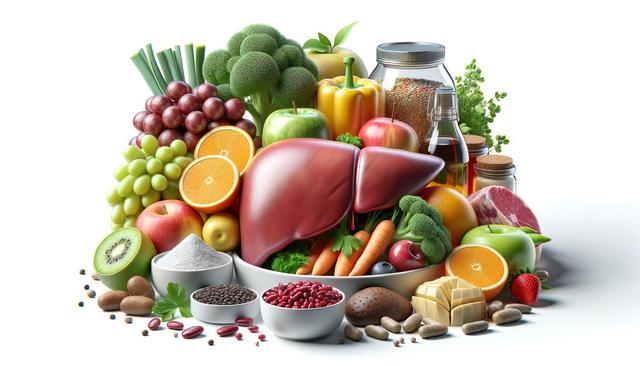Understanding Fatty Liver Disease and Its Nutritional Needs
Fatty liver disease, characterized by the accumulation of fat in liver cells, is becoming increasingly common. Diet plays a critical role in managing this condition, as it can influence liver health significantly. A nutrient-rich diet focusing on whole foods can help reduce liver fat, improve insulin sensitivity, and support overall metabolic function. It is essential to understand that a diet for fatty liver disease should prioritize reducing inflammation, managing weight, and promoting liver cell regeneration. By carefully selecting the right foods, individuals can make meaningful strides in their health journey.
Key Foods to Include in a Liver-Friendly Diet
Certain foods have been associated with improved liver health due to their anti-inflammatory and antioxidant properties. Including a variety of these foods can help support liver function and reduce fat buildup. Beneficial foods for a fatty liver diet include:
- Leafy greens like spinach and kale for their high antioxidant content
- Fatty fish such as salmon and sardines, providing valuable omega-3 fatty acids
- Whole grains like oats and brown rice, offering fiber and essential nutrients
- Fruits such as berries and citrus fruits rich in vitamin C and other antioxidants
- Legumes including lentils and chickpeas, offering plant-based protein and fiber
Incorporating these foods consistently can help create a more balanced and liver-supportive meal plan.
Foods and Habits to Limit or Avoid
Just as some foods support liver health, others can contribute to further damage and should be limited or avoided. Reducing the intake of the following can make a significant difference:
- Added sugars found in sweets, sodas, and processed foods
- Refined carbs like white bread, pasta, and pastries
- Alcohol, which can exacerbate liver inflammation and fat accumulation
- Fried and fatty foods containing trans fats or excessive saturated fats
In addition to dietary changes, habits like mindful eating, avoiding overeating, and maintaining a consistent meal schedule can contribute positively to managing fatty liver disease.
Creating a Balanced Meal Plan
Building a sustainable meal plan is key to long-term management of fatty liver disease. A typical day might include:
- Breakfast: A bowl of oatmeal topped with berries and a sprinkle of chia seeds
- Lunch: A large salad with leafy greens, grilled salmon, avocado, and a vinaigrette dressing
- Snack: A handful of mixed nuts or a piece of fruit
- Dinner: Grilled chicken breast with quinoa and steamed broccoli
Portion control is just as important as food selection. Eating smaller, more frequent meals can help regulate blood sugar and prevent overeating, both of which are beneficial for liver health.
Other Lifestyle Considerations for Liver Health
While diet is a central component, other lifestyle factors also play a significant role in managing fatty liver disease. Regular physical activity, aiming for at least 150 minutes of moderate exercise per week, supports weight management and improves liver function. Managing stress through techniques such as meditation, yoga, or deep breathing exercises can also be beneficial. Additionally, getting adequate sleep is crucial, as poor sleep patterns have been linked to metabolic dysfunction. Combining these lifestyle changes with a supportive diet creates a comprehensive approach to managing fatty liver disease effectively.


